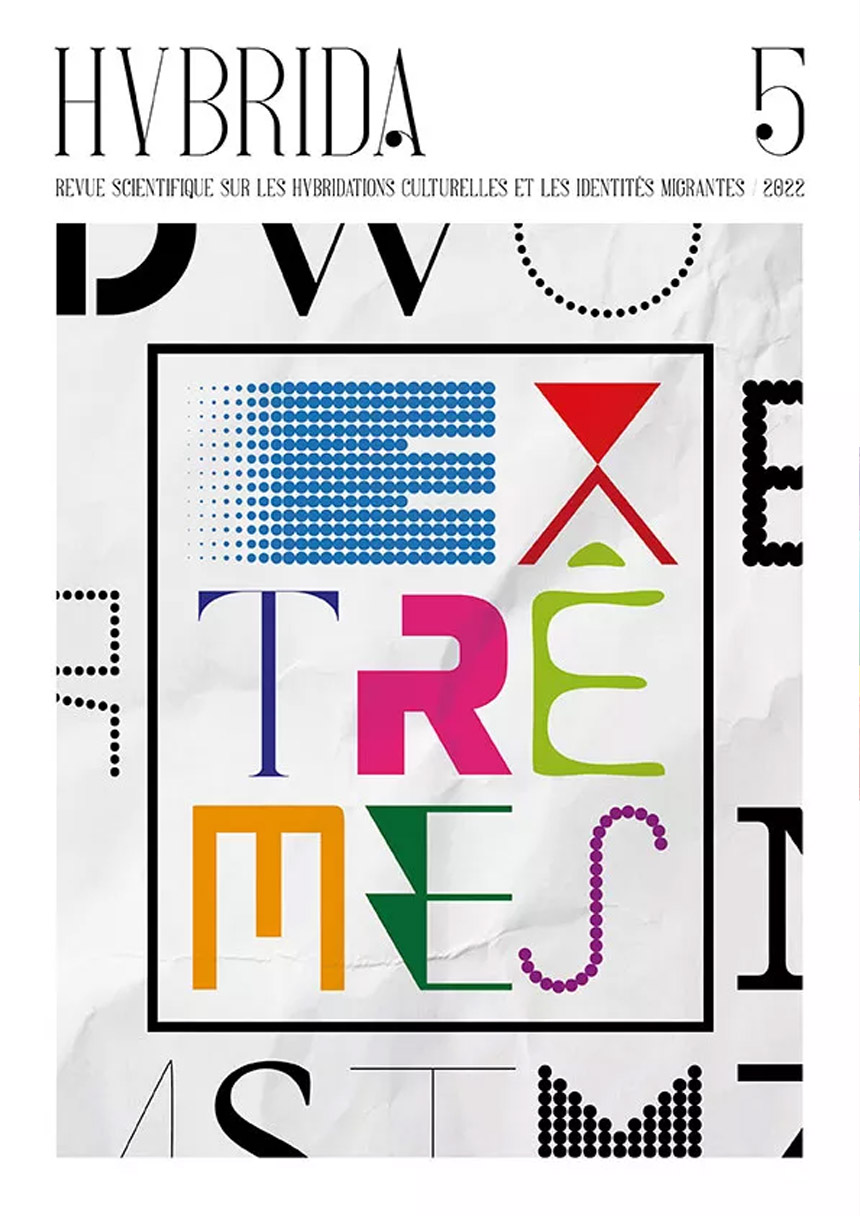
The biannual scientific publication on cultural hybridisations and migrant identities is publishing a new volume this December.
The fifth issue of HYBRIDA contains the dossier ‘EXTRÊME/S’, coordinated by Ahmed Haderbache and Didier Lestrade. It comprises four articles from Côte d’Ivoire, Finland and France, which discuss the work of writers Azo Vauguy, Koffi Kwahulé and Hélène Cixous, as well as filmmakers interested in Paris’ Chinatown. The ‘Mosaic’ section features four intriguing articles from Morocco and Spain, which cover a range of topics, including the historical figure of Estevanico, the integration/integrism dichotomy in Fouad Laroui’s work, the Batouala case (winner of the 1921 Prix Goncourt) and the hybridisation woman–animal in Boris Vian’s work. The ‘Traces’ section features three contributions: Lula Carballo’s fragmentary story restos de barrios, Alexandre Melay’s photographic document [TIMESCAPES] and a comprehensive interview with writer Laura Alcoba. The ‘Variety’ section begins with a thorough review of Hansen-Løve’s essay Planète en ébullition. Écologie, féminisme et responsabilité.
HYBRIDA is a biannual open access journal on cultural hybridisations and migrant identities (ISSN 2660-6259) in which original research in the field of cultural studies is published. The journal is edited by the Universitat de València and has an international scientific committee and a peer review committee that employs a double-blind system. It is aimed at specialised international readers interested in humanities and social sciences, particularly in Francophone and comparative studies. The journal welcomes submissions from the international scientific and academic community in all fields of human sciences. The analysis of cultural productions should focus on intersectionality, including gender, race and class. French is preferred as the language of expression, but we also accept articles in English and Spanish.
- Read the full issue of HYBRIDA.








